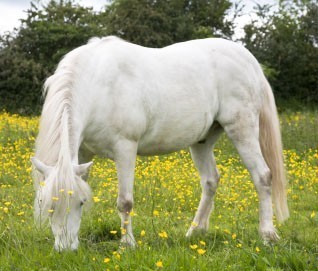
One in five horses is obese in the UK
A new study by the University of Nottingham's School of Veterinary Medicine and Science has found that as many as one in five horses could be classed as obese.
The findings indicate that rates of obesity in horses could be as high as they are among humans.
Researchers say their findings are a useful snapshot of the problem and are being used to raise awareness of equine obesity with owners of horses kept for leisure.
The most common problem found in obese horses is laminitis, but there are a number of associated risks, including joint issues, blood sugar level variations and tendon problems. It is a common misconception by horse owners that their pets will be happier if they are perpetually eating, and owners are reluctant to be “cruel” by restricting food when Misty is banging away at the door demanding more.
Though most owners are sensitive to the health and welfare of their animals, some – either through lack of knowledge of misguided kindness – allow their animals to become obese.
A perpetual debate in the horse world about 'show condition' (the amount of fat and muscle a show horse carries in the ring) only serves to feed the fire as overweight animals are often still placed higher in line ups than their leaner, fitter counterparts.
Horses are assessed for weight and condition using a 'body condition score' – a system which ranges from one to nine. A horse given a seven or higher on the scale is thought to be obese.
